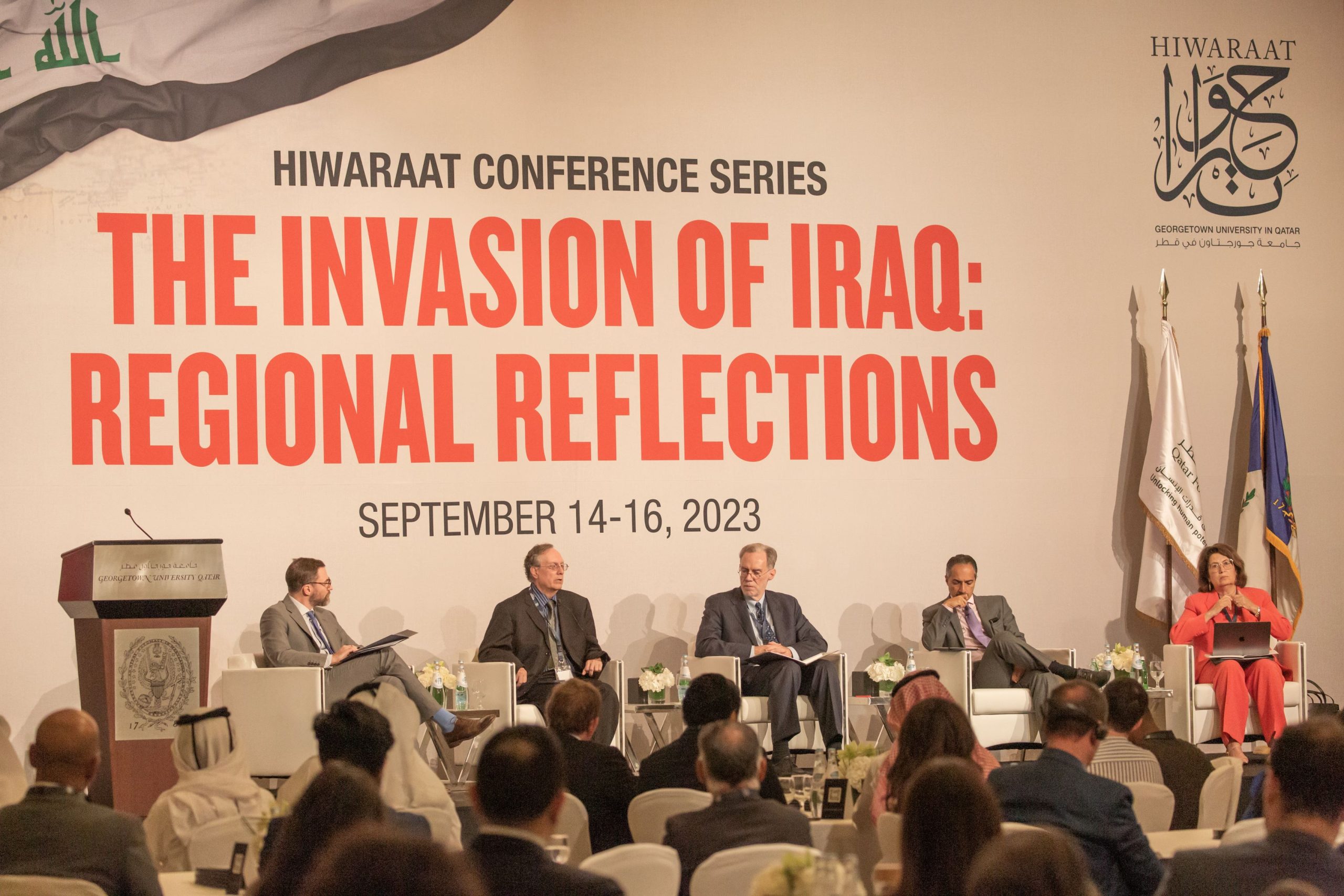Georgetown University in Qatar’s event focused on lessons from Iraq, and stressed the importance having conversations concerning the Middle East in the region itself.
Georgetown University in Qatar (GU-Q) has concluded its pivotal conference, “The Invasion of Iraq: Regional Reflections,” offering a platform for extensive examination and dialogue on Iraq’s past, present, and future challenges.
Organised by Dr. Safwan Masri, Dean of GU-Q, in collaboration with the Center for International and Regional Studies (CIRS), the conference served as a confluence for diverse voices on global issues.
This is the first conference in GU-Q’s Hiwaraat series, which means “dialogues” in Arabic. It is about bringing together scholars, practitioners, and the general public to discuss important, relevant, and timely issues, and providing an inclusive, engaged space where innovative solutions to current and future challenges can be found.
In an interview with Doha News, Masri emphasised the unique advantage of hosting the conference in Qatar.
“Being in the Global South, there are opportunities for us to serve as a platform for important conversations that couldn’t be held anywhere else. If we were to have this conference on our main campus in Washington DC, the dialogue would be different,” Masri said.
“We are able to engage in these conversations in a much more nuanced, sophisticated, and authentic manner than we could elsewhere,” he added.
The conference drew a distinguished roster of participants, including current and former Iraqi policymakers, veteran diplomats, journalists, academics and international experts, providing a multifaceted analysis of Iraq’s past and the intricate challenges it faces going forward.
Former President of Iraq, Dr. Barham Salih, was forthright in his remarks about the country’s aspirations, “Iraqis genuinely want to integrate into the region,” he stated, reflecting on the vocal youth movements of 2019 that chanted “Nurid Watan” (We want a homeland).
Various panels and speakers focused on critical issues ranging from economic development and governance to the role of youth activism and media.
Topics also extended to Iraq’s relationships with neighbouring countries, and broader regional and global challenges such as the emergence of Da’esh and climate change.
“I think the United States imperialism has had a big role in fueling extremist, religious extremist groups,” Juan Cole, author and professor of Middle Eastern history at the University of Michigan, told Doha News.
“The policy of the United States in the old Cold War days was to crush the Arab left, and so there’s always going to be some dissent in society. If you crushed the leftist groups, then who took their place?” he explained.
Looking to the future
In the run-up to GU-Q’s 20th anniversary, Dr. Masri articulated the institution’s ambitious goals.
“Our eyes are focused on the next 20 years. We are embarking on an ambitious strategy to become the preeminent global campus in the region,” he said.
Zahra Babar, Associate Director for Research at CIRS, encapsulated the spirit of the conference, stating, “These conversations are not always easy, but they are necessary.”
The next instalment in GU-Q’s Hiwaraat Conference Series is set for September 30 to October 1, focusing on “Global Histories and Practices of Islamophobia.” The series aims to create a fertile ground for insightful dialogue and innovative solutions to present and future challenges.







